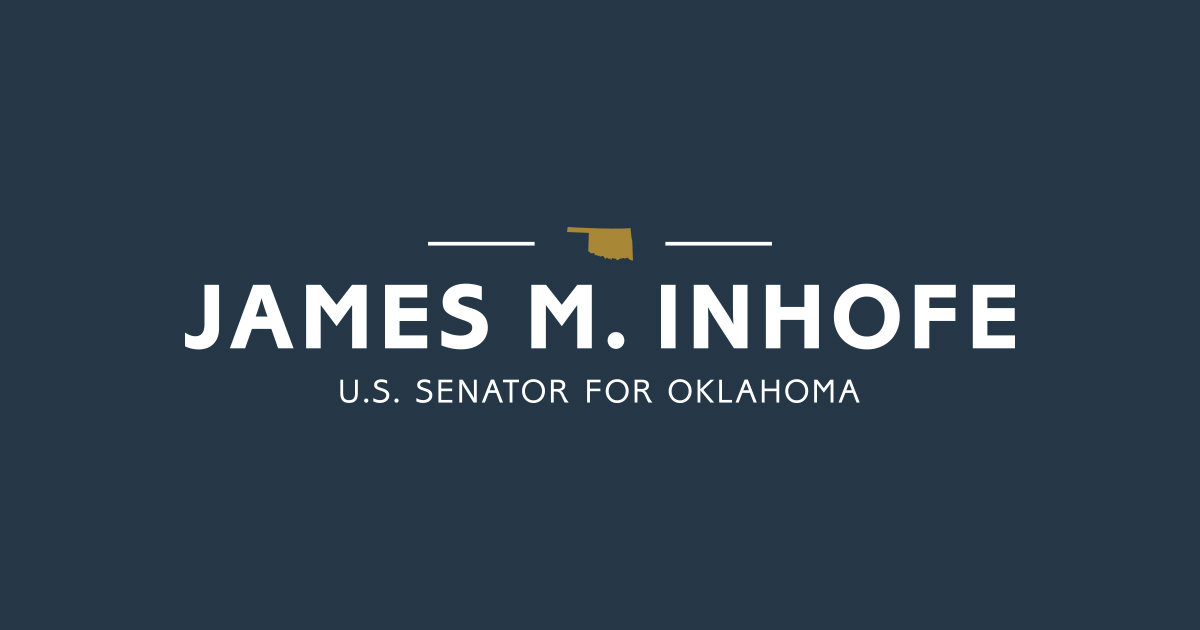Source: United States Senator for Oklahoma James Inhofe
U.S. Sen. Jim Inhofe (R-Okla.), ranking member of the Senate Armed Services Committee (SASC), today delivered opening remarks at the annual posture hearing for United States Africa Command (AFRICOM) and United States Central Command (CENTCOM). He also submitted remarks for the record regarding the plight of the Sahwari people of Western Sahara — whose right to self-determination Sen. Inhofe has long championed.
Witnesses include: General Stephen Townsend, Commander, AFRICOM; and General Frank McKenzie, Commander, CENTCOM.
As Prepared for Delivery:
Thank you, Mr. Chairman, I join you in welcoming witnesses and thank them for their decades of service.
When our witnesses testified last year, they painted a grim picture of the security threats in their theaters. Things have only gotten worse since then.
I see three challenges in CENTCOM: Iran’s terrorist proxies acting more aggressively, our partners increasingly doubt America’s resolve, and Russia and China trying to fill the void.
These challenges are a direct result of President Biden’s misguided policies: He downgraded support to our partners against Iran and its proxies. He reversed President Trump’s terrorist designation of the Houthis. He offered Iran massive sanctions relief to rejoin the failed 2015 Iran deal, even as Iran increases its aggression against us.
Iran is the foremost threat in the region. Yet our partners see the administration’s appeasement of Iran and ask themselves: Are we on our own? Is America abandoning us?
Last summer’s disastrous drawdown from Afghanistan, which culminated with the killing of 13 service members, only reinforced those questions.
We also face significant challenges in Africa, including the growing presence and capability of jihadi groups across the continent. China and Russia are exploiting Africa to destabilize our partners, project their military power, and expand their influence at our expense.
I’ve always viewed Africa as critical to our national security, which is why I pushed for its creation in 2007, and why 15 years later, the role of AFRICOM is more important than ever.
Despite this, AFRICOM has never been given the resources it needs to do its job. We need to be realistic about the level of resources needed to address these challenges.
We can’t effectively compete with China and Russia and sustain our counterterrorism efforts without real growth in our defense budget, including for AFRICOM.
Gen. Townsend, I’ll speak more about the issue of Western Sahara during my questions, but I’m pleased the Secretary provided guidance to assess alternative locations and hosts for DOD exercises in Africa, including the annual AFRICAN LION exercise.
This will be crucial to ensuring we grow better relationships in Africa, and help reverse the tide in our strategic competition with China and Russia.
Sen. Inhofe also submitted the following remarks for the record regarding Western Sahara:
General Townsend, I want to talk about an issue that I’ve been following closely for decades – the plight of the people of Western Sahara. Many of my colleagues may not know much about what’s been going on in Western Sahara, but it’s nothing short of a tragedy.
The fate of the Sahrawi people of Western Sahara has been in limbo since it was decolonized and the United Nations adopted a resolution calling for a referendum on self-determination in 1966. More than five decades later, no referendum has been held, and their destiny has been subjected to broken promise after broken promise by the Moroccan government.
All the Sahrawi people have asked for is the opportunity to decide their own fate – to hold a referendum on self-determination – something the United Nations has endorsed on multiple occasions.
Yet, Morocco has repeatedly failed to live up to its commitments. It’s claimed for years that Western Sahara is under its sovereign control – a claim the International Court of Justice flatly rejected in 1975.
Rather than abide by the Court’s ruling, Morocco instead attempted to annex Western Sahara by force. After 16 years of conflict, a UN-brokered settlement and ceasefire took effect in 1991, which again called for a referendum.
Yet, here we are. Tens and tens of thousands of Sahrawi people are still living in refugee camps, as they have done for most of their lives, waiting for a resolution. I know, because I’ve visited with them many times.
I spoke out strongly against the last Administration’s decision to recognize Morocco’s illegitimate claims of sovereignty over Western Sahara. It was misguided, it overturned decades of consistent U.S. policy, and it alienated a significant number of our African partners.
That’s why I sent a letter to President Biden last year with 26 of my Senate colleagues urging him to reverse this decision.
Now members of the Administration are claiming that Morocco is making a good faith effort to reach a mutually acceptable solution between Morocco and Western Sahara. I couldn’t disagree more.
Nothing I’ve seen from Morocco makes me think they’re serious about a resolution after blocking one for all of these years. On the contrary, the misguided decision to recognize their sovereignty claims have only rewarded decades of bad behavior.
The United States owes it to the Sahrawi people to honor our commitment, to help ensure the Moroccans live up to theirs, and to see this referendum through. The Sahrawi people deserve the right to freely choose their own destiny.
